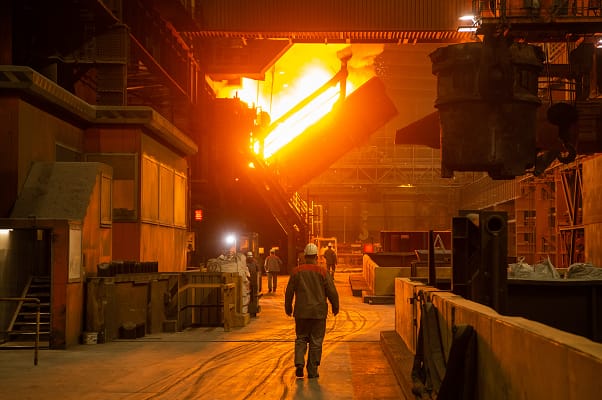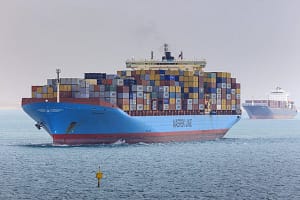The UK has been spared Donald Trump’s 50% import tariffs on aluminium and steel which has been welcomed by the industry, however there is “uncertainty” over what the final rate will be.
The US President is providing the UK with a “different treatment” after a deal was struck last month.
Gareth Stace, the director general of UK Steel said this is a “welcome pause.”
He added, “Continued 25% tariffs will benefit shipments already on the water that we were concerned would fall under a tax hike.
“However, uncertainty remains over timings and final tariff rates, and now US customers will be dubious over whether they should even risk making UK orders.
“The US and UK must urgently turn the May deal into reality to remove the tariffs completely.”
A government spokesperson said, “The UK was the first country to secure a trade deal with the US earlier this month and we remain committed to protecting British business and jobs across key sectors, including steel as part of our Plan for Change.
“We’re pleased that as a result of our agreement with the US, UK steel will not be subject to these additional tariffs. We will continue to work with the US to implement our agreement, which will see the 25% US tariffs on steel removed.”
William Bain, the BCC’s Head of Trade Policy, said, “UK firms exporting steel or aluminium goods to the US will be relieved that tariffs will not double today. They now at least have clarity that duty rates will remain the same until 9 July.
“By it is critical that the US and UK governments deliver on the commitments made in the Economic Prosperity Deal (EPD) to ensure long term certainty. That would mean the removal of tariffs on UK exports of steel and aluminium, and for all derivative products like cutlery, cans, nuts and screws to be exempt as well.
“With many other nations now facing up to punitive 50% levies, this shows why negotiation was the right response. UK businesses should now be in pole position with one of our two top export markets.
“However, the continually shifting sands around tariffs are creating more uncertainty for businesses globally and weighing heavily on growth. The BCC’s latest economic forecast predicts just a 1.1% increase in UK GDP for 2025, and much of this was generated in the trading frenzy before tariffs rose.
“So, we must not stop here. We want to see implementation of the EPD just as quickly on cars and automotive parts. Firms across many other goods sectors are also still facing a 10% tariff. We must use the foundations of our current agreement to deliver tariff relief to all parts of the economy.”






Leave a Comment